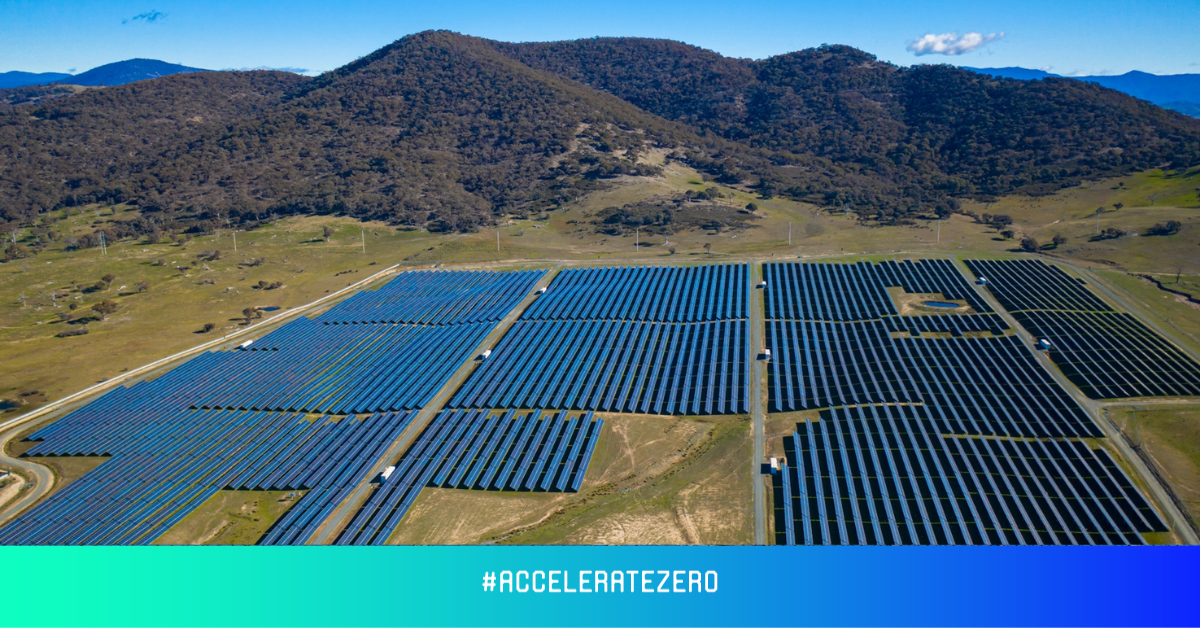May 27, 2021 1:15:51 PM
Editorial Team

With the intensified effort of the world’s biggest economies to combat climate change, Australia is poised to gain massive economic benefits – if it plays its cards right.
As the world’s biggest emitters make an impassioned push towards net-zero emissions by 2050, many countries – from Japan to South Africa to Germany and France – are joining the movement and setting their own plans to significantly reduce carbon emissions.
In his remarks at the Virtual Leaders Summit on Climate, U.S. President Joe Biden commented that “America represents less than 15 percent of the world’s emissions” highlighting the importance of collective action among nations and that each one will have to step up.
Showing resolute commitment to the goals of limiting global warming to 1.5 degrees Celsius as enshrined upon in the Paris Agreement, major economies such as the United States, the UK and the EU intends to put pressure on other countries to also accelerate their carbon reduction goals. One of the plans being drawn up is the imposition of tax on carbon-intensive imports or carbon tariffs.
One of the countries that could be directly impacted by this initiative is Australia. While it is arguably true that imposing such tariffs will have a powerful effect in getting countries to accelerate their decarbonisation efforts, the resultant effect in terms of transition cost can never be denied. And in the case of Australia, this cost could be massive.
Australia’s economy relies heavily on coal and gas being exported overseas. The global drive towards decarbonisation only exacerbates the dismal state of Australia’s fossil fuel industries. Its exports, more than 70% of which goes to Asian markets, are set to further decline as these countries also adopt net-zero targets that are in line with international goals.
In addition, global warming is already having a knock-on effect on Australia’s natural resources, affecting its pristine agricultural and tourism sectors. Clearly, the cost to Australia in terms of diminishing opportunities, as well as upfront transition cost just to adopt ‘cleaner’ technologies is quite significant. Too significant that a Deloitte study estimates a $3.4 trillion loss in GDP and would cost the economy 880,000 jobs by 2070 if climate change is left unchecked.
“In an economic future where Australia and the rest of the world do not mitigate the worst effects of climate change, the world has an emissions pathway that produces global average warming of above 3°C by 2070. While this is a global average, the reality is that in parts of Australia it will be much hotter. We will, truly, be the sunburnt country,” says Deloitte.
The good news, however, is that despite the necessary transition cost, the global efforts towards net-zero emissions and fast-tracked decarbonisation is beneficial to the long-term economic prospects of Australia.
The prospect is so good that noted economist and author of the book, Superpower: Australia’s low carbon opportunity, Ross Garnaut commented: “The fog of Australian politics on climate change has obscured a fateful reality: Australia has the potential to be an economic superpower of the future post-carbon world.”
With its vast natural resources and the continuous decline of renewable energy production cost, Australia could become, not only self-sufficient in a decarbonised world but a net exporter of electricity and other green industrial products.
Australia’s current position as a major exporter of fossil fuel energy can be used to transition itself as a reliable source of renewable energy for the world’s major economies. Already, countries such as Japan, South Korea and Germany are asking Australia to export renewable hydrogen for their own domestic energy consumption. This indicates that Australia has what the world wants. By putting the right policy framework to become more globally competitive, Australia could easily scale and maintain its position as a major exporter of energy.
Furthermore, the planned carbon tariff would only result in the acceleration of momentum towards green products, and thus, production and technology transfer will gain greater speed. With enough government support as well as the active participation of key private institutions, what could otherwise be a doom and gloom scenario could easily be replaced by success and massive opportunities.
***
Join us at the Impact X Summit on Climate Growth, happening on 21-22 September in Sydney. This summit will bring Australia’s most promising and exciting innovators to the stage and will directly address the decarbonisation and resilience opportunity and connect technology founders and carbon service providers with the investors, buyers and partners they need to scale. To learn more or to register to attend the conference, click here.